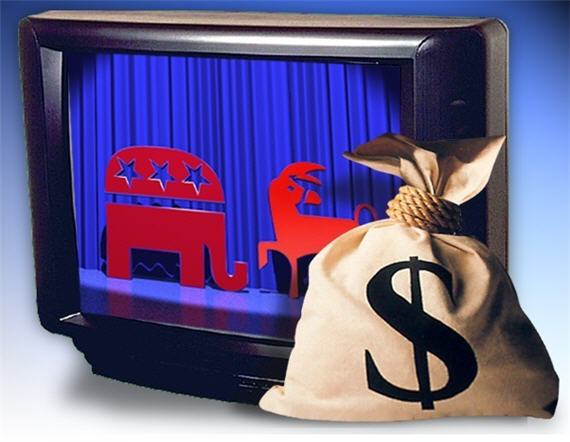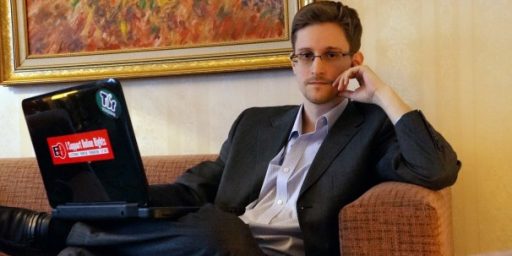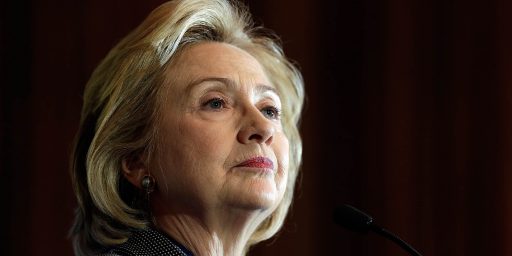Judge Strikes Down Ban on Corporate Giving
The next shoe has dropped in the battle between campaign finance laws and the 1st Amendment.
The next shoe has dropped in the battle between campaign finance laws and the 1st Amendment.
AJC (“Federal judge strikes down ban on corporate giving to candidates“):
A ruling by a federal judge in Virginia makes it legal for corporations to contribute directly to candidates for federal office in a case likely to end up before the U.S. Supreme Court.
U.S. District Judge James C. Cacheris’ ruling, which does not immediately apply to Georgia, grants corporations the same rights as individuals to give directly to candidates.
The Supreme Court, in 2010’s Citizens United ruling, had previously said that corporations had a First Amendment right to make so-called independent expenditures to support a particular candidate, but it stopped short of granting them the ability to contribute directly to a candidate’s campaign. That ruling roiled campaign finance precedents and struck down key sections of the McCain-Feingold Act.
In Georgia, corporations are allowed to give directly to candidates for state office, and this year lawmakers approved a measure that lifts a ban on giving by utilities regulated by the Public Service Commission. Those companies, however, are still barred from giving to PSC candidates.
Cacheris’ ruling, which is likely to end up before the Supreme Court, only affects companies in his Alexandria, Va.-based district. But Doug Chalmers, founder of Atlanta-based Political Law Group and expert in campaign finance law, said if the high court upholds Cacheris’ decision, companies across the country would be allowed to contribute to candidates for the U.S. Senate and House.
“It would be a sea change in federal campaign finance law,” Chalmers told The Atlanta Journal-Constitution.
“This judge has now extended the reasoning from Citizens United to say if corporations have the same First Amendment rights as individuals and individuals are allowed to make contributions to candidates within certain limits, then corporations have the same right,” Chalmers said.
The ruling in United States v. William Danielczyk Jr. & Eugene Biagi centers on Hillary Clinton’s 2006 and 2008 Senate and presidential campaigns. A grand jury earlier this year had charged both men with illegally soliciting and reimbursing Clinton’s 2006 campaign for U.S. Senate and her 2008 bid for the Democratic nomination for president.
This is the logical extension of Citizens United. Still, the Supreme Court has in a series of rulings placed a higher burden on limits to generic political expression, including issue advocacy, and electioneering for specific candidates or parties. It’s always struck me as an absurd and artificial distinction, however.







Great, just what we need more ways to hide who your giving cash to. While I agree in spirit with the ruling, until disclosure laws catch up with these the integrity of our election system becomes more and more questionable.
I’m not sure it’s a logical extension of Citizens United, though I’m guessing the judge disagrees.
Giving money to a candidate can be a bribe; there’s good reason to regulate such contributions and corporations pose the problem that they could be used as shell (or better yet, a series of shells) to effectuate the transaction that might be a crime if done directly.
Banning independent contributions raised the spectre of banning books with political themes, creating non-free speech zones according to primary and election schedules, and preventing those companies not tied into a K street power-broker from having a voice.
(Haven’t read the opinion)
So if I give a candidate a suitcase with $10,000 in the hopes he’ll vote my way on pending legislation, I’ll go to prison?
But if I give same $10,000 to the same candidate via an open contribution to his campaign in the hopes he’ll vote my way on the same pending legislation, I’m just a good citizen exercising my free speech rights?
Do I have that correct?